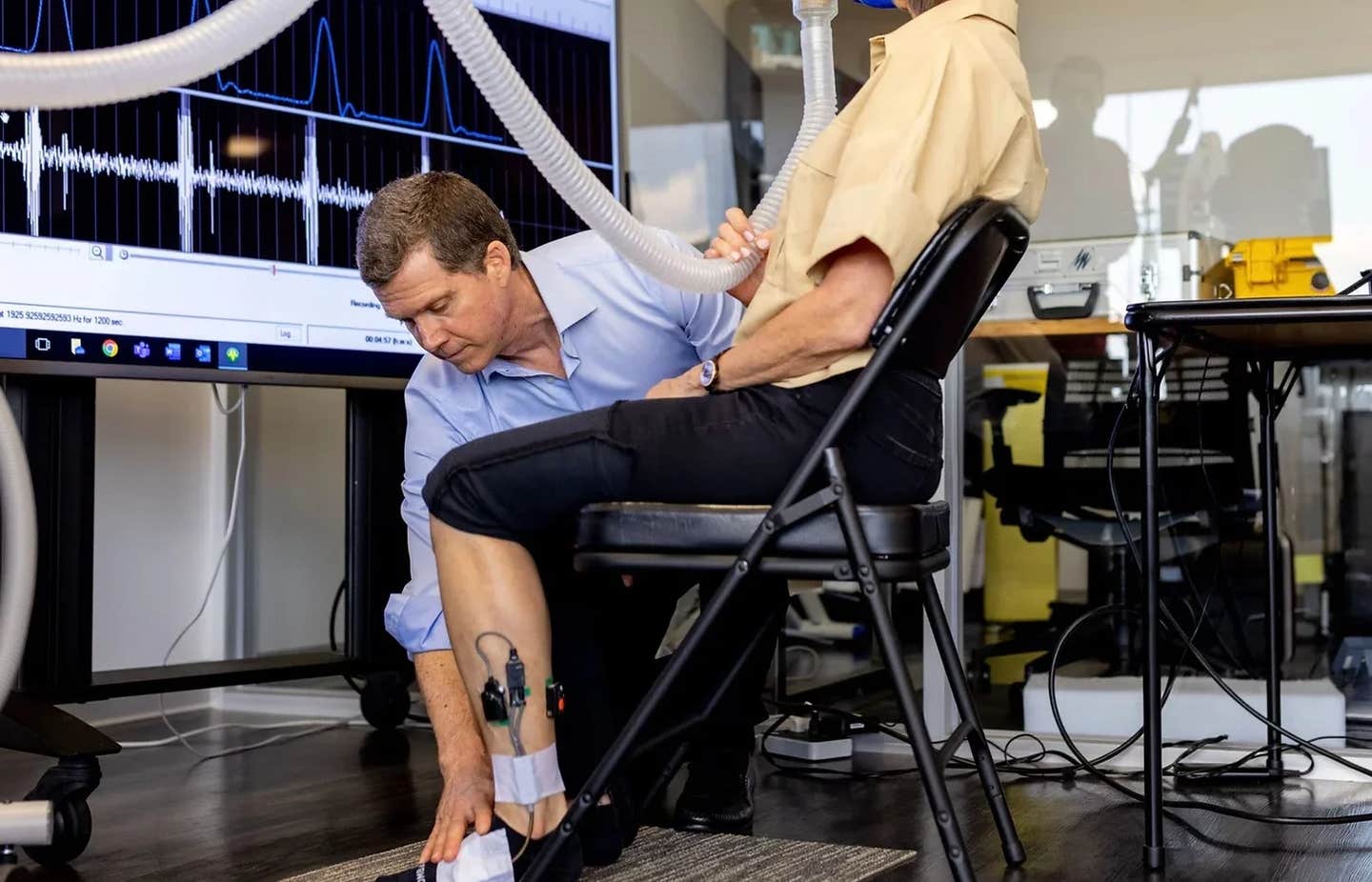Groundbreaking new drug shows promise in restoring human vision
A new drug accelerates myelin repair, restoring vision and brain function in MS, offering hope for neurological disease treatment.

Researchers have identified a drug that enhances myelin repair, restoring vision and brain function in multiple sclerosis and other neurological diseases. (CREDIT: CC BY-SA 4.0)
Damage to myelin, the protective sheath surrounding nerve fibers, impairs the brain's ability to transmit signals efficiently. This condition, known as demyelination, disrupts motor function, sensory processing, and cognition. It is a hallmark of multiple sclerosis (MS) and other neurodegenerative diseases, as well as a consequence of aging, stroke, and traumatic brain injuries.
While the central nervous system has some ability to repair myelin, the process is often incomplete. Researchers continue to search for therapies that can enhance remyelination and restore neurological function. A recent study at the University of Colorado Anschutz Medical Campus has identified a drug, LL-341070, that accelerates this repair process and could offer new hope for individuals with MS and other conditions.
The Role of Myelin in Brain Function
Myelin is produced by oligodendrocytes, specialized cells that wrap axons with lipid-rich membranes. This insulation enables rapid electrical signal transmission, ensuring efficient brain communication. When myelin is lost, neurons struggle to relay information, leading to severe delays in signal propagation, increased vulnerability to degeneration, and functional impairments.
Demyelination affects both white and gray matter, with neocortical gray matter damage strongly linked to physical and cognitive disabilities in MS. The body responds with remyelination, a process where new oligodendrocytes replace damaged ones. However, this natural repair mechanism often falls short, particularly in cases of widespread or severe myelin loss.
Although researchers have identified compounds that promote remyelination, no FDA-approved therapies exist. Understanding the mechanisms and limitations of remyelination remains crucial for developing effective treatments.
Investigating Remyelination and Functional Recovery
To study myelin repair, scientists used the visual cortex, an area highly sensitive to changes in myelin integrity. The research involved longitudinal two-photon imaging and high-density electrical recordings to observe remyelination dynamics.
Related Stories
The experiment induced demyelination using cuprizone, a toxin that selectively targets oligodendrocytes, and tested two potential remyelination drugs: LL-341070, a thyroid hormone mimetic, and clemastine, an existing FDA-approved antihistamine.
Results revealed that cuprizone exposure caused significant oligodendrocyte loss and delays in visual response times. The brain initiated a rapid remyelination process, but its effectiveness varied based on the extent of damage.
Mild demyelination led to substantial recovery, whereas moderate to severe damage overwhelmed the repair mechanisms, leaving oligodendrocyte numbers depleted even after seven weeks.
LL-341070 significantly enhanced the remyelination process, outperforming clemastine in restoring oligodendrocytes and expediting neural recovery. The drug proved especially effective following severe damage, eliminating the natural remyelination deficit and restoring myelin levels to those found in healthy, age-matched mice.
A Potential Breakthrough for Neurological Disorders
The findings, published in Nature Communications, suggest that LL-341070 could serve as a breakthrough therapy for demyelinating diseases. By enhancing the brain’s innate repair mechanisms, the drug may help restore vision, motor function, and cognitive abilities in individuals with MS and related disorders.
“This research brings us closer to a world where the brain has the capacity to heal itself,” said Ethan Hughes, PhD, co-lead author and associate professor at the University of Colorado School of Medicine. “By harnessing this potential, we hope to help people with diseases like MS by potentially reversing some of the damage, offering people the opportunity to regain their vision and cognitive function."
The study demonstrated that even partial myelin repair significantly improved vision-related brain functions, reinforcing the critical role of myelin in neurological health.
“We've known for years that myelin plays a crucial role in brain function,” said Daniel Denman, PhD, co-lead author of the study and assistant professor at the University of Colorado School of Medicine. “This study highlights the role of cortical myelin in visual function. The drug could be a game-changer because it accelerates the brain’s natural repair mechanisms.”
Next Steps in Myelin Repair Research
The research team plans to test LL-341070 in other brain regions and refine the treatment to enhance its effectiveness. While the drug has shown promise in animal models, further studies are needed before human clinical trials can begin.
“This discovery is just the beginning,” Hughes said. “We are optimistic that LL-341070 and similar therapies could one day provide real, tangible benefits to patients by improving overall brain function and quality of life.”
The findings underscore the urgent need for targeted remyelination therapies. By accelerating myelin repair, treatments like LL-341070 could offer new hope for individuals facing the debilitating effects of demyelination.
Note: Materials provided above by The Brighter Side of News. Content may be edited for style and length.
Like these kind of feel good stories? Get The Brighter Side of News' newsletter.
Rebecca Shavit
Science & Technology Journalist | Innovation Storyteller
Based in Los Angeles, Rebecca Shavit is a dedicated science and technology journalist who writes for The Brighter Side of News, an online publication committed to highlighting positive and transformative stories from around the world. With a passion for uncovering groundbreaking discoveries and innovations, she brings to light the scientific advancements shaping a better future. Her reporting spans a wide range of topics, from cutting-edge medical breakthroughs and artificial intelligence to green technology and space exploration. With a keen ability to translate complex concepts into engaging and accessible stories, she makes science and innovation relatable to a broad audience.



